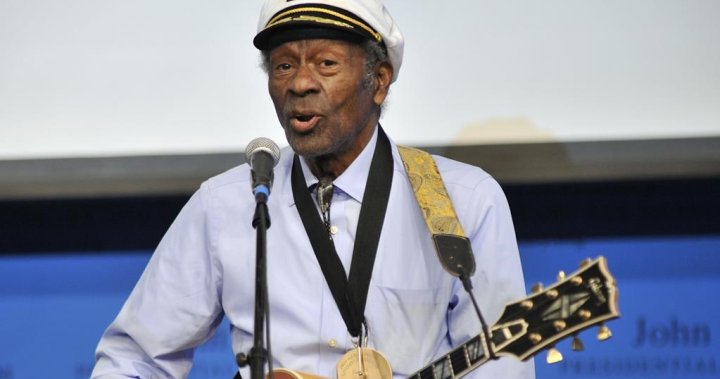Future immortals: What of today’s music will humanity be listening to hundreds of years from now? – National | Globalnews.ca
What’s the oldest song you know? I’m not talking about something from oldies radio but something really old.
Some people will cite a hymn or other piece of devotional music (Think Joy to the World, composed by Isaac Watts in 1719). But once ethnomusicologists start weighing in, learn of songs that are much older. The oldest folk song ever discovered is Hurrian Hymn to Nikkal, which was committed to a clay tablet using a crude form of musical notation and dates to at least 1400 BCE. Music used in religious rituals, such as Rigveda from the area where India and Pakistan exist today, has been around for at least 35 centuries.
But what about popular secular music in the Western world?
JS Bach (d. 1750), Mozart (d. 1791), and Beethoven (d. 1827) have all outlived their music by centuries. Hardcore classical music fans still enjoy the works of Guillaume Du Fay, a French composer who died in 1474.
Read more:
6 reasons why old music is endangering the music of today and the future
When Johann Pachelbel wrote his “Canon in D” sometime around 1680, he probably didn’t expect it to live much longer than he did. Yet although Pachelbel died in early 1706, his composition is not only still being performed and recorded today, it’s also been adapted and co-opted by artists today.
“Go West” from The Pet Shop Boys, “C U When U Get There” from Coolio, Kylie Minogue’s “I Should Be So Lucky,” and “All Together Now” from The Farm are all based in some way on “Canon in D.”
You can even make a case for “Basket Case” by Green Day and “Don’t Look Back in Anger” from Oasis being inspired by Pachelbel. No wonder producer Pete Waterman once described the piece as “almost the godfather of pop music.”
This begs for us to engage in a thought experiment. Which of today’s artists, if any, will experience similar immortality?
While there is obviously no right answer, this kind of speculation is complex and tricky. As they say in the financial commercials, past performance is not indicative of future results.
A couple of things to consider.
Popularity, no matter how massive, can be fleeting. Take the case of Paul Whiteman, an American bandleader of the 1920s and 30s. He was so big and his recordings sold so well that he was given the title “King of Jazz.”
Yet because he appealed to such mainstream tastes, many music historians and critics have chosen to ignore his career, preferring instead to focus on artists they consider to be more musically significant.
The same goes for Mitch Miller, the vehemently anti-rock executive and performer with Columbia Records and the creator of the once insanely popular Sing Along with Mitch series of albums. He was one of America’s most influential music figures in the ’50s and early ’60s and was responsible for selling millions of albums.
But how many people are aware of him today?
Read more:
In praise of — and a plea for — better sounding music
History tends to favour innovators, those who upended the status quo. So instead of rapturously recounting the accomplishments of Whiteman and Miller, we instead learn of Duke Ellington, Benny Goodman, and the mysterious blues artist legend, Robert Johnson.
Another issue is technology. Classical music survived through the centuries as sheet music, making it available to conductors, orchestras and performers worldwide. Once sound recordings took off in the late 1800s, it took until the 1950s for the quality of the audio to reach proper levels of realism.
Once that happened, old lo-fidelity mono recordings (and the artists who made them) quickly began to disappear from the public consciousness. Anything that survives going forward will have to be reproducible in a way that sounds good. (And at the moment, the storage format with the longest life and the least chance of degrading over hundreds of years is still the vinyl record.)
OK, so who does have a chance of musical immortality?
Elvis Presley used to be an excellent candidate, but to be honest, his music hasn’t aged all that well. The crass merchandising that followed his death in 1977 forever besmirched much of his musical legacy, turning him into a kitschy pop culture figure with less relevance to each subsequent generation.
Will his music live forever? He’ll be certainly noted in the history books as an innovator and musical pioneer, but will anyone be covering “Don’t Be Cruel” in 2156?
How about the King of Pop? No one will ever sell more physical albums than Michael Jackson and there’s no doubt his body of musical work was both groundbreaking and influential. But he, too, has been tainted by events in his personal life, things that often overshadowed his music. And pop music is by its very nature transient and trendy. It’s possible that at least some of his music just won’t sound … right to future ears.
Given their massive cultural and societal impact, people might nominate songs from The Beatles’ canon to live forever. After all, it’s hard to imagine anyone 100 or 500 years from now not getting swept up in the glorious na-na-na-na coda of “Hey Jude.” And because of the insane amount of scholarship and documentation that continues to be generated around The Beatles more than 50 years after their breakup, there will be plenty to study for decades to come. A good bet, then.
Bob Dylan might also be one of the immortals. As one of the pre-eminent songwriters of all time, he’s his own area of scholarship. There are Dylanologists around the world who study everything he’s done. Plus he’s the winner of a Nobel Prize. That helps.
When it comes to hip hop, Kendrick Lamar (a Pulitzer Prize winner) has a shot. So does Kanye, although his non-musical antics may spell his doom in the long run.
Other suggestions? Paul Simon. Neil Young. Bruce Springsteen. We’ll see.
Read more:
How our music is shaped by technology, part 1
There’s a new wrinkle, too. We need to consider the current trend of companies buying up the catalogues of artists for huge amounts of money. Normally an artist’s body of work slowly fades to black after their deaths and as new generations of musicians take their place.
That natural order of things is in the process of being overthrown. In order to make a profit on their investments, these companies are going to do everything they can to ensure these songs live on (and generate profits) for as long as possible. This will extend the lives of these songs — and, by extension, the artists who wrote them — for decades longer than we’d otherwise expect.
None of the above are guaranteed to last forever, of course. But I do think there’s one sure thing when it comes to picking an artist who will be remembered for all time as a pivotal figure from the rock’n’roll era: Chuck Berry.
His three-chord, four-on-the-floor brand of guitar rock was the template for so much that happened subsequently that future musicologists studying the most important musical idiom of the latter half of the 20th century will always return to Chuck’s innovations and influence.
Berry also has one other advantage. When the Voyager spacecraft were launched in 1977, each contained a special gold phonograph recorded featuring the sounds of Earth selected by a committee that was chaired by Carl Sagan. Of the 31 tracks on the two sides of the record, there is exactly one rock song: side one, track 11 is “Johnny B. Goode.”
Both crafts are now hurtling through interstellar space on a forever voyage that will outlast the life of not just our planet, but of our sun.
If an alien race ever gets to play that record, the only indication that rock’n’roll ever existed will be Chuck Berry.

© 2022 Global News, a division of Corus Entertainment Inc.
For all the latest entertainment News Click Here




